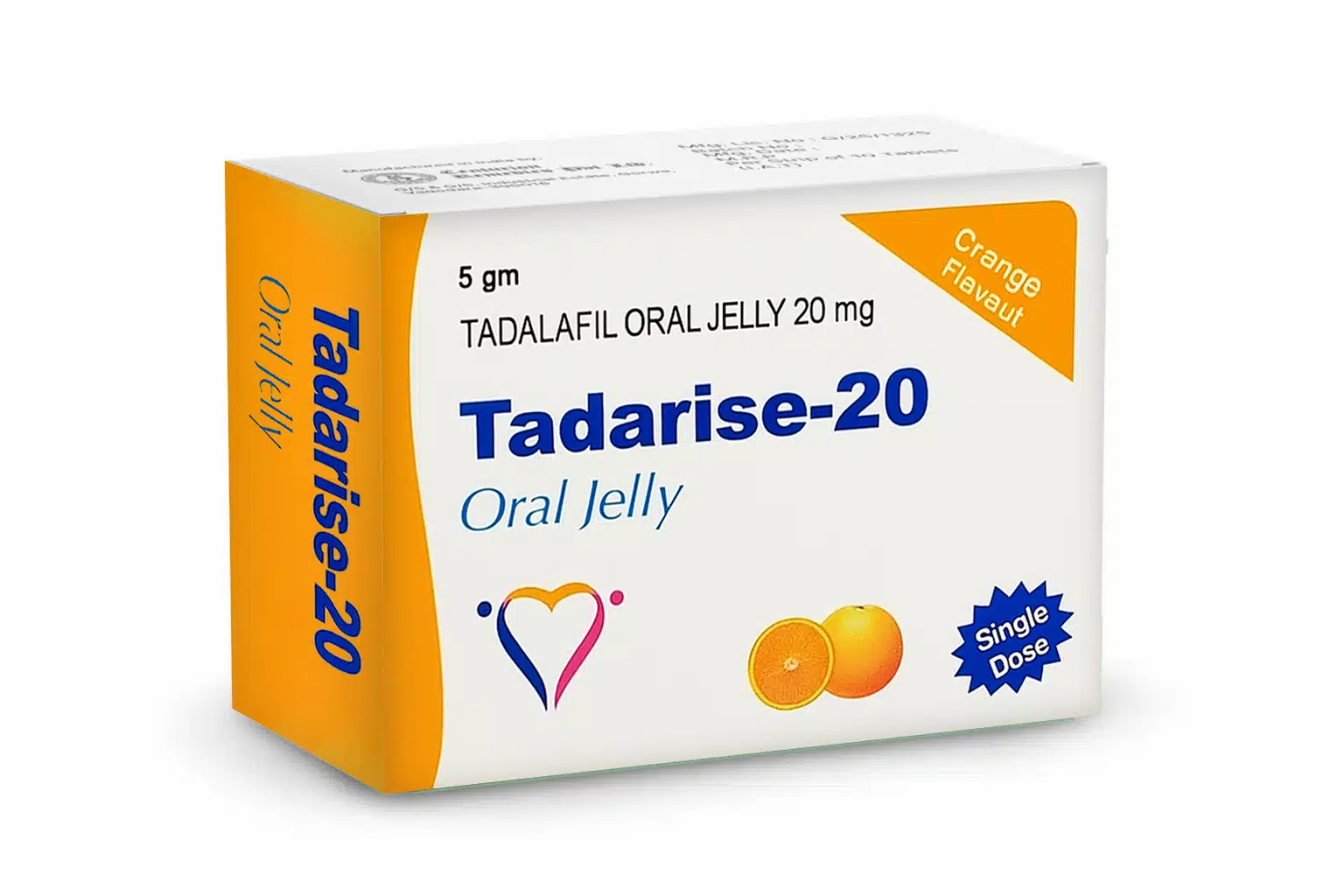When most people think of erectile dysfunction (ED), they imagine it as a private health matter, something to be discussed with a doctor, or at worst, a quiet issue that occurs between spouses. But what happens when ED spills into the courtroom? That is exactly what happened recently in India, when the Telangana High Court rejected a woman’s plea for divorce and Rs 90 lakh (around $108,000) alimony after she claimed her husband was impotent due to Rheumatoid Arthritis.
The wife alleged that her husband’s condition caused permanent erectile dysfunction and argued that this amounted to “cruelty” and “fraud” under the Hindu Marriage Act. But the Court disagreed, stating there was no medical proof to back her claims and no evidence that the marriage was never consummated.
While this ruling is deeply rooted in Indian matrimonial law, it raises questions that resonate worldwide: Can ED become a legal battleground in marriages? How would such a case be viewed in the US or UK? And what lessons can couples everywhere learn from it?

ED, Marriage, and the Law: Beyond India
Although the Telangana case is specific to India, the issues it highlights are universal. Erectile dysfunction, whether it is temporary or chronic, can create tension in relationships. But does it legally justify divorce or alimony?
- In the United States, divorce law varies by state, but impotence (if proven) has historically been grounds for annulment in some jurisdictions. Today, however, most divorces are filed under “irretrievable breakdown of the marriage” or “irreconcilable differences,” where proving ED isn’t necessary.
- In the United Kingdom, ED is not specifically recognized as grounds for divorce. Instead, cases would be argued under “unreasonable behavior” or “lack of consummation.” But again, courts demand solid proof, not just allegations.
This global perspective mirrors what the Telangana judges emphasized: allegations of impotence without medical evidence are not enough to dissolve a marriage or justify financial claims.
Why ED Becomes a Marital Flashpoint
Erectile dysfunction is common, studies suggest that half of men over 40 experience it at some point. Yet, the stigma around it is enormous. In many cultures, including Western ones, a man’s sexual performance is unfairly tied to his masculinity, his role as a partner, and even his worth in a marriage.
That stigma often turns ED into more than a medical condition. It becomes:
- A source of blame in failing relationships.
- A bargaining chip in divorce or alimony cases.
- A silence trap where couples avoid addressing the problem out of shame.
The Telangana case demonstrates how quickly medical struggles can be reframed as legal weapons. And while courts may reject weak evidence, the emotional damage from such accusations can be lasting.
The Medical Reality: ED Is Manageable
The husband in the Indian case admitted to experiencing temporary erectile dysfunction but provided proof of recovery and potency. This is a crucial point: ED is rarely permanent.
Modern medicine offers multiple solutions:
- Lifestyle changes – weight management, reducing alcohol, and regular exercise.
- Therapy and counseling – addressing performance anxiety and relationship stress.
- Medications like Tadagra – which contains tadalafil, a clinically proven treatment that helps improve blood flow and restore erectile function.
For couples in the US or UK, the availability of prescription treatments like Tadagra has been a game changer. Men no longer have to view ED as a permanent condition. Instead, it’s a challenge that can be addressed with medical support and open communication.
Best Seller
-
Cenforce 100 Mg
Best Seller$24.00 – $215.00Price range: $24.00 through $215.00Rated 5.00 out of 5Shop Now This product has multiple variants. The options may be chosen on the product page -
Vidalista 5 Mg
Best Seller$18.00 – $182.00Price range: $18.00 through $182.00Rated 4.00 out of 5Shop Now This product has multiple variants. The options may be chosen on the product page -
Vidalista 40 Mg
Best Seller$28.00 – $276.00Price range: $28.00 through $276.00Rated 4.00 out of 5Shop Now This product has multiple variants. The options may be chosen on the product page -
Cenforce 200 Mg
best sellers$31.00 – $335.00Price range: $31.00 through $335.00Rated 4.00 out of 5Shop Now This product has multiple variants. The options may be chosen on the product page -
Cenforce Fm
Best Seller$33.00 – $218.00Price range: $33.00 through $218.00Rated 4.00 out of 5Shop Now This product has multiple variants. The options may be chosen on the product page -
Kamagra 100 mg
best sellers$24.00 – $125.00Price range: $24.00 through $125.00Rated 5.00 out of 5Shop Now This product has multiple variants. The options may be chosen on the product page -
Fildena 100 mg
best sellers$24.00 – $244.00Price range: $24.00 through $244.00Rated 4.00 out of 5Shop Now This product has multiple variants. The options may be chosen on the product page -
Malegra Oral Jelly 100 Mg
Best Seller$8.00 – $44.00Price range: $8.00 through $44.00Rated 5.00 out of 5Shop Now This product has multiple variants. The options may be chosen on the product page -
Super Kamagra Oral Jelly
Best Seller$25.00 – $120.00Price range: $25.00 through $120.00Rated 4.00 out of 5Shop Now This product has multiple variants. The options may be chosen on the product page -
Tadarise Oral Jelly
Best Seller$19.00 – $72.00Price range: $19.00 through $72.00Rated 4.00 out of 5Shop Now This product has multiple variants. The options may be chosen on the product page -
Careforce 200 Mg
Best Seller$29.00 – $332.00Price range: $29.00 through $332.00Rated 5.00 out of 5Shop Now This product has multiple variants. The options may be chosen on the product page -
Stallegra 100 Mg
best sellers$88.00 – $224.00Price range: $88.00 through $224.00Rated 5.00 out of 5Shop Now This product has multiple variants. The options may be chosen on the product page -
Exclusive
Aurogra 100 Mg
best sellers$29.00 – $76.00Price range: $29.00 through $76.00Rated 4.00 out of 5Shop Now This product has multiple variants. The options may be chosen on the product page -
Priligy 30mg
best sellers$22.00 – $156.00Price range: $22.00 through $156.00Rated 4.00 out of 5Shop Now This product has multiple variants. The options may be chosen on the product page
Could This Happen in the US or UK?
Imagine a similar case being brought before a family court in New York or London. Would the outcome be different? Likely not.
In Western legal systems:
- Courts prioritize objective medical evidence over accusations.
- A history of cohabitation and sexual intimacy weakens claims of “unconsummated marriage.”
- Financial claims like alimony are determined by broader factors such as income, contribution to marriage, and future needs, not just sexual health.
In other words, while ED can influence personal relationships, it rarely tips the scales in legal battles unless it is proven to be both permanent and deliberately concealed before marriage.
Lessons Couples Can Take Away
This case, though rooted in Indian law, carries universal lessons:
- Communication beats litigation
Silence around ED breeds resentment. Honest conversations and seeking help early can prevent years of bitterness. - Medical solutions are real
From counseling to lifestyle changes to medications like Tadagra, men have more options than ever before. Temporary struggles need not define an entire marriage. - Legal proof is essential
Whether in India, the US, or the UK, courts won’t dissolve a marriage or grant financial claims based solely on accusations. Documented medical evidence is a must. - Compassion matters
Health challenges should invite empathy, not weaponization. Illness, whether physical or sexual, doesn’t automatically equal fraud or cruelty.
Breaking the Stigma
One of the most important takeaways from this case is how ED continues to carry heavy stigma across cultures. In the West, men may not face the exact same societal pressure as in India, but many still suffer silently rather than seek medical help.
The truth is simple: ED is a health condition, not a moral failing. Just as no one should be shamed for diabetes or arthritis, no man should be humiliated for struggling with erections. With treatments like Tadagra, medical science has made it possible for men to overcome ED and restore both confidence and intimacy.
Conclusions
The Telangana High Court’s ruling reminds us that while accusations around impotence may capture headlines, the real lessons are deeper. Courts around the world demand evidence, not emotion, before granting divorce or financial compensation on grounds of ED. More importantly, couples everywhere must learn to distinguish between temporary medical struggles and genuine marital betrayal.
For readers in the US and UK, the takeaway is clear: don’t let stigma dictate your relationships. Erectile dysfunction can be managed, treated, and overcome. With open communication, medical support, and solutions like Tadagra, couples can avoid letting health issues spiral into courtroom battles.
After all, intimacy isn’t just about physical performance, it’s about trust, empathy, and partnership.
Frequently Asked Questions (FAQs)
1. Can erectile dysfunction (ED) be grounds for divorce in the US or UK?
In most US states and in the UK, ED alone is not typically considered grounds for divorce. While older laws recognized “impotence” or “non consummation” as valid reasons, today divorces are usually granted under broader terms like “irretrievable breakdown of the marriage.” That said, if one spouse can prove permanent impotence concealed before marriage, it could be a factor in annulment cases.
2. What did the Telangana High Court case highlight about ED and marriage?
The Telangana High Court in India rejected a woman’s claim that her husband’s erectile dysfunction justified divorce and alimony. The Court ruled that without medical proof, such allegations cannot annul a marriage. This highlights a universal legal principle: courts require evidence, not just accusations, when ED is cited in marital disputes.
3. How is erectile dysfunction treated today?
ED is highly treatable. Options include lifestyle changes, psychological counseling, hormone therapy, and prescription medications. Drugs like Tadagra (which contains tadalafil) are popular in the US and UK for their effectiveness in improving blood flow and restoring erectile function, often lasting up to 36 hours.
4. Is Tadagra safe to use?
Tadagra is generally considered safe when prescribed by a doctor. Like other ED medications, it may cause side effects such as headache, flushing, or mild indigestion. However, it should not be taken with nitrates or certain heart medications, as dangerous interactions may occur. Always consult a healthcare provider before starting Tadagra or any ED medication.
5. Can temporary erectile dysfunction ruin a marriage?
Not necessarily. Temporary ED is common and often linked to stress, fatigue, or lifestyle factors. Open communication, medical consultation, and solutions like Tadagra can help couples overcome the challenge. The real risk to marriage arises when health issues are hidden, stigmatized, or turned into accusations rather than addressed constructively.
6. What should couples do if ED becomes a source of conflict?
The first step is to talk openly without blame. Seeking medical advice together can reduce stigma and anxiety. If needed, couples therapy can also help. In the US and UK, where treatments like Tadagra are widely available, there’s no need to let ED escalate into a relationship-ending or legal battle.
7. How common is erectile dysfunction in men?
Very common. Studies show that about 1 in 2 men over the age of 40 will experience some degree of ED in their lifetime. The good news is that most cases are manageable with modern medicine, meaning men don’t have to suffer in silence.
References
- https://www.news18.com/india/woman-claims-her-husband-is-impotent-demands-rs-90-lakh-alimony-hc-says-were-not-ws-l-9527227.html
- https://thelogicalindian.com/telangana-hc-rejects-womans-divorce-%E2%82%B990-lakh-alimony-plea-over-unproven-impotence-allegation/#:~:text=The%20Telangana%20High%20Court%20has,Rheumatoid%20Arthritis%2C%20causing%20
erectile%20dysfunction. - https://www.barandbench.com/news/telangana-high-court-junks-wifes-plea-for-90-lakh-alimony-rejects-claim-that-husband-is-impotent














